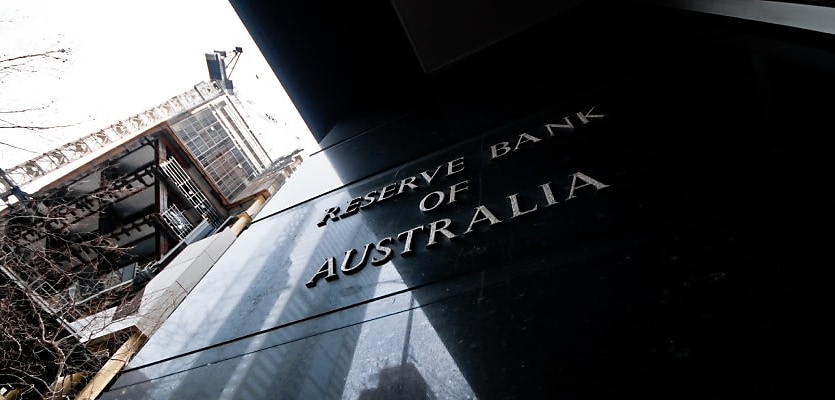The International Monetary Fund has called for further monetary policy tightening in Australia to bring “high and persistent” inflation back down to the RBA’s target range.
Further monetary policy tightening is needed in Australia to bring inflation back to target and keep inflation expectations anchored, according to the International Monetary Fund (IMF).
In a report published less than a week before the Reserve Bank of Australia (RBA) hands down its next interest rate decision, staff at the IMF assessed that Australia’s headline rate of inflation is easing at a slow pace while core inflation still remains “sticky”.
“Although inflation is gradually declining, it remains significantly above the RBA’s target and output remains above potential,” the IMF said.
“Staff therefore recommend further monetary policy tightening to ensure that inflation comes back to the target range by 2025 and minimise the risk of de-anchoring inflation expectations.”
Expectations for a November rate hike ramped up significantly following the release of the latest consumer price index (CPI) which showed that headline and trimmed mean inflation both rose by 1.2 per cent in the September quarter.
In annual terms, headline inflation declined to 5.4 per cent, down from a peak of 7.8 per cent in the December quarter of 2022 but still above the RBA’s target range of 2 to 3 per cent.
“Easing of global supply chain pressures and a slowdown in domestic demand – owing to tighter monetary policy – helped reduce goods inflation,” the IMF said.
“However, despite a recent moderation, services inflation remains high and broad-based, driven by strong demand, input cost pressures from both labour costs (reflecting historically tight labour markets and weak productivity outcomes) and non-labour costs (such as rent and electricity), and supply constraints.”
The IMF staff predicted that inflation will remain outside the RBA’s target range for an “extended period” with average inflation of 5.8 per cent in 2023 and 4.0 per cent in 2024.
While the RBA’s latest forecasts are for inflation to fall within the target range by late 2025, updated forecasts are due to be released in its November statement on monetary policy.
“The authorities have substantially tightened monetary policy, alongside fiscal consolidation, but further policy actions are recommended to bring down inflation faster,” the IMF noted.
‘Continued coordination’ needed
According to the IMF, “continued coordination” between fiscal and monetary policy is needed to achieve a soft landing and alleviate the impact of tightening on households.
“The commonwealth government and state and territory governments should implement public investment projects at a more measured and coordinated pace, given supply constraints, to alleviate inflationary pressures and support the RBA’s disinflation efforts,” it said.
“Otherwise, interest rates would have to be even higher, putting the burden of adjustment disproportionately on mortgage holders.”
Overall, the IMF assessed the Australian economy as being “resilient”, but identified a number of risks to the outlook, namely “high and persistent inflation, a more uncertain global environment, and climate-related shocks”.
The international body has forecast that Australia’s annual GDP growth will slow to around 1.8 per cent in 2023 and 1.2 per cent in 2024, down from 3.7 per cent in 2022.
It noted that Australia’s fiscal deficit has contracted at a faster pace than other advanced economies, with a majority of improvements to revenue being put towards improving the nation’s fiscal position.
“Cyclical windfalls from higher commodity prices and a stronger labour market have been redirected towards improving the fiscal position, which is helping to ensure fiscal policy is working with monetary policy to avoid inflationary pressures,” the IMF said.
Reacting to the IMF report on Wednesday, Treasurer Jim Chalmers said that it represented a “glowing endorsement” of the federal government’s “responsible economic management”.
“The IMF makes it abundantly clear that our cost‑of‑living plan and our responsible economic management is helping rather than hampering the fight against inflation,” he said.
“Fiscal and monetary policy are working closely together so that we can take some of the edge off these inflationary pressures.”
But the Treasurer refused to comment on the IMF’s recommendation for further monetary policy tightening in Australia.
“I don’t make predictions and I don’t pre-empt decisions taken independently by the Reserve Bank. They will meet on Tuesday and they will come to a decision and they’ll communicate that in the usual way,” he said.
“But more broadly, it’s very clear from the IMF report and from the comments of the Reserve Bank governor at estimates last week that the government’s policies and plans are taking some of the edge off inflation rather than adding to it.”









You are not authorised to post comments.
Comments will undergo moderation before they get published.